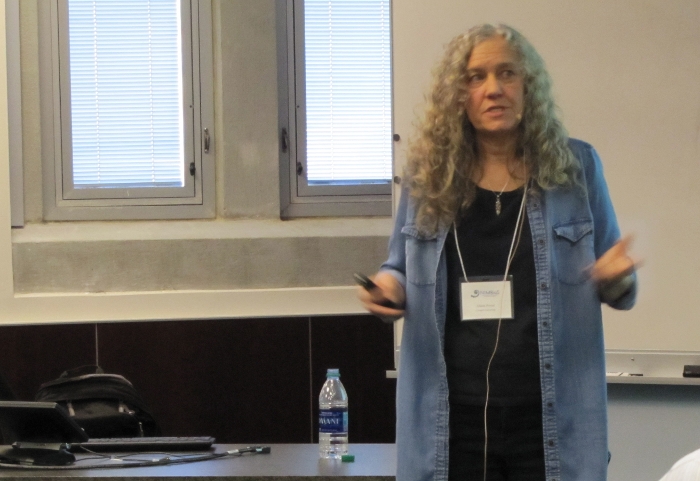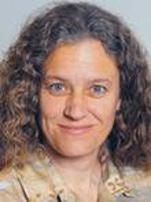NIMBioS Seminar Series
In conjunction with the interdisciplinary activities of the National Institute for Mathematical and Biological Synthesis (NIMBioS), a seminar series on topics in mathematical biology will be hosted at NIMBioS every other Tuesday at 3:30 p.m. (unless otherwise noted) in the Hallam Auditorium, Room 206, Claxton Building, 1122 Volunteer Blvd. Seminar speakers will focus on their research initiatives at the interface of mathematics and many areas of the life sciences. Light refreshments will be served in Room 205 beginning 30 minutes before each talk. Faculty and students from across the UT community are welcome to join us.
Speaker:
Dr. Alison G. Power, Ecology and Evolutionary Biology, Cornell Univ.
Time/Date: Tuesday, March 29, 2016, 3:30*
Location:
Room 206, Claxton Building, 1122 Volunteer Blvd.
Topic:
From landscapes to coinfections: Plant virus epidemiology at multiple scales
Abstract:
Infections of a single host by multiple pathogens are common in nature but relatively poorly studied compared to single infections. In this talk I will discuss the causes and consequences of coinfection by insect-transmitted plant viruses in two systems: 1) the multiple species of barley/cereal yellow dwarf viruses (B/CYDVs) infecting wild grasses across Western US grasslands; and 2) the multiple strains of potato virus Y infecting potatoes and other solanaceous plants on farms in upstate New York. Our research is addressing the drivers of virus emergence and spread at multiple scales, including the landscape, the field, and within individual host plants. I will present data on the influence of landscape structure, vector community composition, transmission dynamics, and within-host processes on the epidemiology of these aphid-transmitted viruses.
Alison Power is a Professor of Ecology and Evolutionary Biology at Cornell University. Her research program focuses on disease ecology in plant communities. Using manipulative field and greenhouse experiments, Power's lab has examined how landscape heterogeneity, plant community diversity and composition, coinfection, and plant density and dispersion affect insect-transmitted pathogens in natural and agricultural ecosystems. These topics have been addressed in various locations in the U.S., Central America, and Southeast Asia.
*Join us for refreshments at 3 p.m.
Seminar Flyer (pdf)
This seminar was not recorded.
Live-streamed seminars are archived for later viewing on NIMBioS' YouTube channel.
For more information about this and other NIMBioS Seminars, visit /seminars.

NIMBioS
1122 Volunteer Blvd., Suite 106
University of Tennessee
Knoxville,
TN 37996-3410
PH: (865) 974-9334
FAX: (865) 974-9461
Contact NIMBioS



